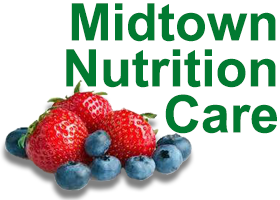VITAMIN D
Vitamin D is important for bone health, and an important part of keeping your immune system healthy.
Vitamin D is a fat-soluble vitamin and is not found in many foods, unless added by fortification. Some natural food sources of vitamin D are sockeye salmon, canned tuna and sardines. Some fortified food sources are milk (cow’s milk, soy milk, or nut milk), cheese, and yogurt.
Your body can also make vitamin D when sunlight hits your skin. However, during the winter in the Northeast your skin is not able to make enough because your skin has less exposure to the sun. Also, if you have darker skin, you need to be outside in the sun for longer.
HOW MANY INTERNATIONAL UNITS (IU) DO YOU NEED PER DAY?
0-12 months— 400 IU
1-70 years— 600 IU
71 years or more— 800 IU
FOOD SOURCES
–Trout (rainbow), farmed, cooked, 3 ounces— 645 IU
–Salmon (sockeye), cooked, 3 ounces— 570 IU
–Mushrooms, white, raw, sliced, exposed to UV light, 1/2 cup— 366 IU
–2% Milk, vitamin D fortified, 1 cup— 120 IU
–Sardines (Atlantic), canned in oil, drained, 2 sardines— 46 IU
–Soy, almond, and oat milk, vitamin D fortified, 1 cup— 100−144 IU
–Ready-to-eat cereal, fortified, 1 serving— 80 IU
–Egg, 1 large whole egg, scrambled— 44 IU
–Liver, beef, braised, 3 ounces— 42 IU
–Tuna fish (light), canned in water, drained, 3 ounces— 40 IU
–Cheese, cheddar, 1 ounce— 12 IU
–Mushrooms, Portobello, raw, diced, 1/2 cup— 4 IU
–Chicken breast, roasted, 3 ounces— 4 IU
–Beef, ground, 90% lean, broiled, 3 ounces— 1.7 IU
